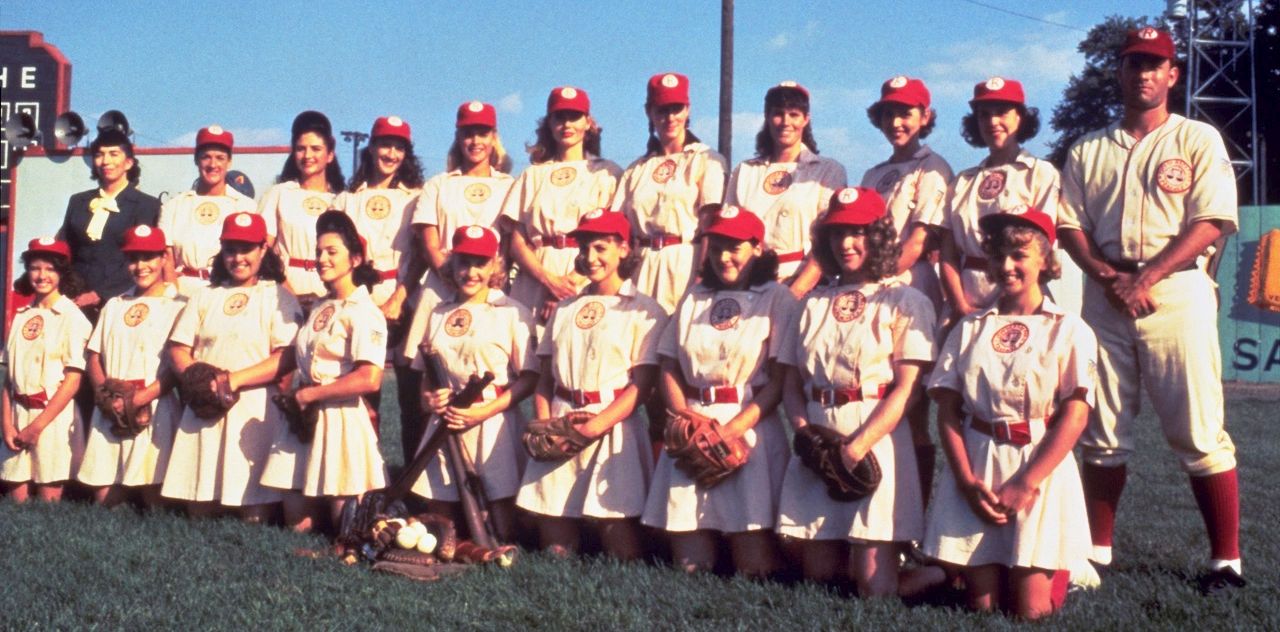 It has been a very quiet year for action heroine films. Here we sit, entering the sixth month of the year, and the only one of the top 100 movies in 2023 at the North American box-office I’ve reviewed here is Everything Everywhere All at Once – and that actually came out in April last year. [I’ll probably add Polite Society to the list shortly] There have been a couple of high-profile streaming titles, such as The Mother, and last week, I discovered the third series of La Reina Del Sur had hit Netflix. It made the top ten shows in the US, which is quite impressive. But it’ll take a few months for me to get through its 60 episodes.
It has been a very quiet year for action heroine films. Here we sit, entering the sixth month of the year, and the only one of the top 100 movies in 2023 at the North American box-office I’ve reviewed here is Everything Everywhere All at Once – and that actually came out in April last year. [I’ll probably add Polite Society to the list shortly] There have been a couple of high-profile streaming titles, such as The Mother, and last week, I discovered the third series of La Reina Del Sur had hit Netflix. It made the top ten shows in the US, which is quite impressive. But it’ll take a few months for me to get through its 60 episodes.
Since there’s nothing new to “feature”, I decided to dip back into the archives and revisit some old reviews, which are in need of updating for one reason or another. I’m starting with League of Their Own. This is partly because it deserves more than the three hundred words it got when originally reviewed 20+ years ago, and partly because of the Amazon reboot into a TV series which came out (as we’ll see, a very apt phrase!) last year. I think my original review (below) was a little harsh, though it may be that I’ve changed since. Baseball is now an intrinsic part of my everyday life, especially during the summer, and I can perhaps appreciate the film that much more.
Indeed, of all the films about baseball – and there have been some classic – I’d rate League behind only The Natural overall. The latter captures the mythic, almost epic quality of the sport, but League simply sparkles in terms of story, characters and dialogue. Virtually everyone involved gives at or near career-best performances, and considering that includes Tom Hanks and Geena Davis, this is a high bar indeed. Hell, even Madonna is good, though it feels more as if the character was written for her, rather than she’s playing a role.
At its heart is the relationship between sisters Dottie (Davis) and Kit (Lori Petty). Kit has been overshadowed by her sister for her whole life, but can at least hold her own in the baseball arena. When the chance comes to play professionally, it’s Dottie the scout wants, but Kit who needs the opportunity, and convinces the scout to take them both. Thereafter, it’s partly about Kit trying to come out from under the shadow of her sister, but also coach Jimmy Dugan (Hanks) rediscovering his love for the game, and all the women proving the game they provide can be every bit as entertaining for spectators as the male version, even if the quality of play is lower]
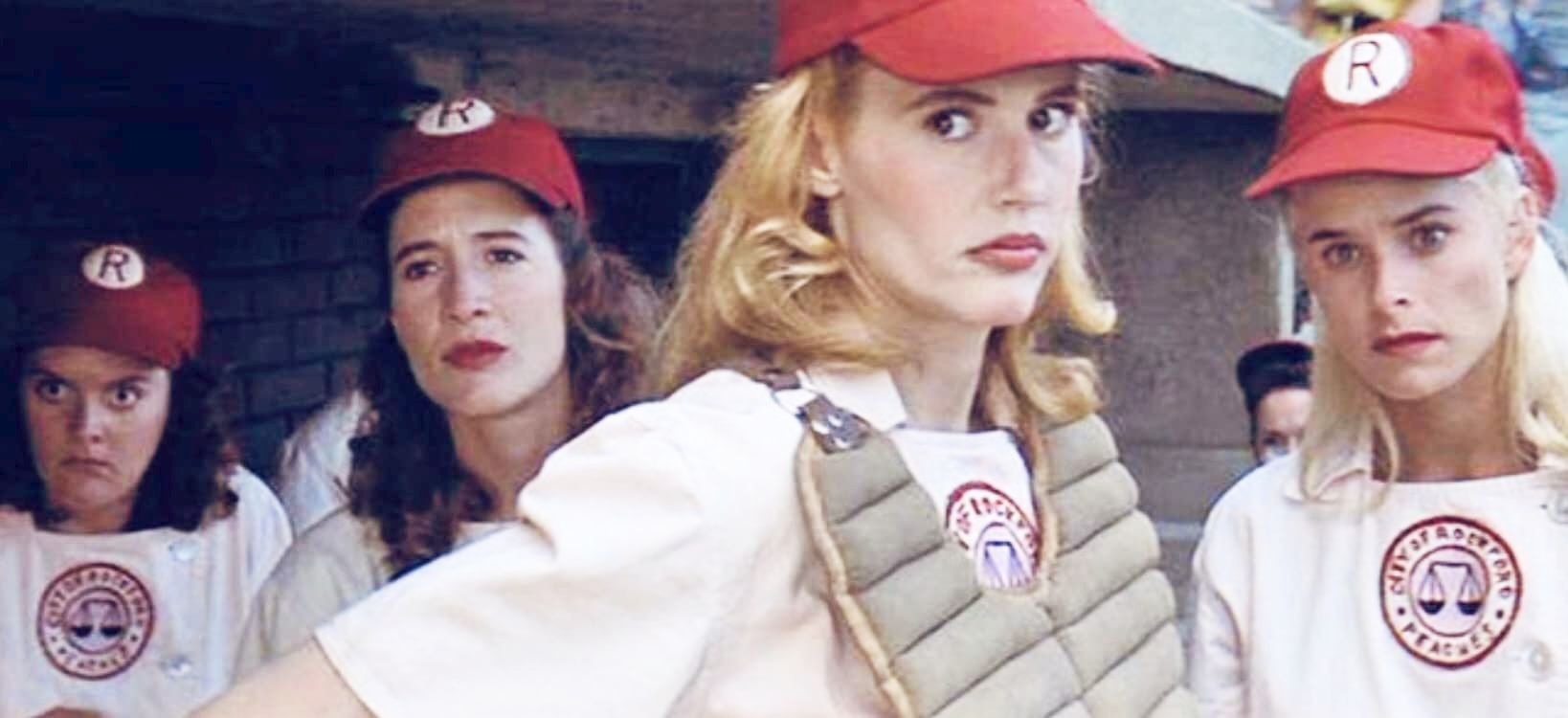 [Diversion. The distinction between quality and entertainment was made clear to me over the past few months as I’ve followed the battle for Wrexham to get promotion from the fifth to the fourth tier of English football. The talent on view is not of Premier League quality, clearly. But the decisive contest against rivals Notts County – won 3-2 by Wrexham after their keeper saved a penalty in injury time – was the most dramatic and enthralling game of football I’ve ever watched. So, the appeal of the All-American Girls Professional Baseball League doesn’t need explaining, even if they’re not the major-leagues]
[Diversion. The distinction between quality and entertainment was made clear to me over the past few months as I’ve followed the battle for Wrexham to get promotion from the fifth to the fourth tier of English football. The talent on view is not of Premier League quality, clearly. But the decisive contest against rivals Notts County – won 3-2 by Wrexham after their keeper saved a penalty in injury time – was the most dramatic and enthralling game of football I’ve ever watched. So, the appeal of the All-American Girls Professional Baseball League doesn’t need explaining, even if they’re not the major-leagues]
Writers Lowell Ganz and Babaloo Mandel do a remarkably good job of keeping all the threads of the story moving forward over the course of the season. Events culminate in the final game, where the two sisters face off, on different teams, for the championship. Dottie knows its her last game, since she’s going to quit and start a family. Kit, however, needs the win, for her self-esteem. It is, of course, Sports Cliche 1.0.1, with the title decided on the final play, Kit barreling into Dottie at home-plate. Yet it still works. Even the wraparound segments, which I disliked at the time, now seem to provide a suitable send-off for the characters we have grown to love over the preceding two hours. Hence, its rating is upgraded to a very solid ★★★★.
Then there’s Amazon’s League of Their Own. It’s basically unwatchable. I tried, trust me. But it takes a story that operated at the intersection of sports and humanity, and turns it into one firmly located on the cross-streets of sexuality and race. And that’s fine. It’s certainly a version which could be told about the AAGPBL. But it isn’t what I wanted to see, and it certainly shouldn’t have been called A League of Their Own, because that creates a set of expectations which the film is unable to fulfill, despite forcing in famous lines like “There’s no crying in baseball!” Call it Lesbians in the War Who Occasionally Play Baseball: that’d be a more accurate reflection of the show’s interests.
Even as that, it’s not very good. The CGI used during the baseball games is flat-out terrible: nobody involved here looks even slightly competent (an area where it differs radically from, say, GLOW). It’s also a thoroughly unconvincing rendition of the period. The dialogue, attitudes and even the incidental music, all appear to come from significantly later times, to the point why you wonder why they bothered setting it in in the forties at all. Turning a frothy and subtly empowering comedy-drama into a social commentary sledgehammer, where baseball is an escape from straight society, was never a good decision. At least the largely (and justifiably) forgotten 1993 series, for all its flaws, operated in the same thematic ballpark. Pun not intended.
None of which takes away in the slightest from the joys to be had in the original movie. We watched it last night, and never mind baseball, it has to be one of the best sports movies, regardless of gender, of all time. That’s probably because it’s a rare entity which works both in terms of its sport and without it. You could remove every scene of them playing baseball and you’d still have a thoroughly entertaining, if somewhat confusing, film. About an all-women bus tour of the Midwest, I guess. But the AAGPBL was an entity that certainly needed to be better known too, and A League of Their Own is the telling of their story which it deserves.
★★★½
“A chick flick with balls…and strikes.”

 Deserving credit for being about the only female sports film of note, this is actually pretty good, despite a pointless and schmaltzy wraparound, which gives us nothing but some wrinkly baseball, one of Madonna’s least memorable songs and Geena Davis as a thoroughly unconvincing pensioner. Which is a shame; if the bread in the sandwich is stale, the meat is tasty and filling.
Deserving credit for being about the only female sports film of note, this is actually pretty good, despite a pointless and schmaltzy wraparound, which gives us nothing but some wrinkly baseball, one of Madonna’s least memorable songs and Geena Davis as a thoroughly unconvincing pensioner. Which is a shame; if the bread in the sandwich is stale, the meat is tasty and filling.
From 1943 to 1954, women played professional baseball, a fact largely forgotten until this film. Davis plays the star catcher, taken from the countryside to play ball – giving a new meaning to “farm team”, hohoho – along with her sister (Petty). The movie covers the first season, under a recovering alcoholic coach (Hanks), leading to a face-off between siblings in Game 7 of the championship.
Davis is excellent and entirely convincing (she’d go on to make final trials for the US 2000 Olympic archery team): the interplay between her and Hanks is great, and most of her team-mates are also true personalities. However, Madonna is superfluous, given the similar presence of Rosie O’Donnell [I’m struggling to avoid obvious jokes here]. Jon Lovitz steals the first quarter as an acidic scout, and it’s a shame when he leaves.
If the characters are great, there’s a lack of narrative drive; how can you get excited over playoffs, when it looks like every team qualifies? The friction between Davis and Petty vanishes for much of the movie, in favour of a series of entertaining but – being honest – unimportant diversions. When we reach the finale though, it’s great; ever bit as exciting as any World Series Game 7. And coming from an Arizona Diamondbacks fan, that’s praise indeed.
Dir: Penny Marshall
Star: Geena Davis, Lori Petty, Tom Hanks, Rosie O’Donnell





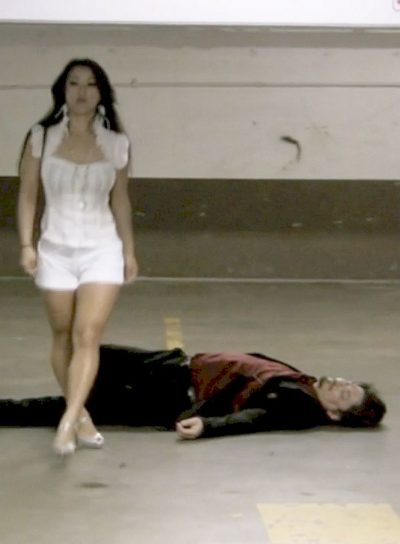 Tubi TV has become a goldmine of obscure, weird and,
Tubi TV has become a goldmine of obscure, weird and,  I spent much of the first thirty minutes here going “That can’t be Juliette Binoche.” Yet, it is, the French actress looking thoroughly unglamorous and very convincing in her portrayal of white trash trucker Sally. Her brother Dennis (Frank Grillo, whose role isn’t as big as the poster would have you believe) is in prison, and under pressure from even sketchier parties, so Sally has been delivering packages for said parties as she criss-crosses the country. He’s about to get out, so this will be her last run. She’s still shocked to discover the item in this case is a
I spent much of the first thirty minutes here going “That can’t be Juliette Binoche.” Yet, it is, the French actress looking thoroughly unglamorous and very convincing in her portrayal of white trash trucker Sally. Her brother Dennis (Frank Grillo, whose role isn’t as big as the poster would have you believe) is in prison, and under pressure from even sketchier parties, so Sally has been delivering packages for said parties as she criss-crosses the country. He’s about to get out, so this will be her last run. She’s still shocked to discover the item in this case is a  I’ve made a terrible mistake. I don’t recall exactly at what point in reading this, I first came to that conclusion. It may have been the multi-page description of dress fitting. It could have been the lengthy shopping expedition. But it’s safe to say that, if I hadn’t been running behind on book reviews, this would almost certainly have been a Did Not Finish, and consigned to the recycle bin of oblivion. The main problem, if definitely not the only one, is the mismatch between the description and reality. The Amazon page describes it, rather breathlessly, as “An Epic Fantasy Romance Adventure.” Silly me, I expected this to mean about equal amounts of those elements, especially given the cover. A more accurate description would be, “A Romantic Epic Romance Fantasy ROMANCE Romance Adventure ROMANCE, with added
I’ve made a terrible mistake. I don’t recall exactly at what point in reading this, I first came to that conclusion. It may have been the multi-page description of dress fitting. It could have been the lengthy shopping expedition. But it’s safe to say that, if I hadn’t been running behind on book reviews, this would almost certainly have been a Did Not Finish, and consigned to the recycle bin of oblivion. The main problem, if definitely not the only one, is the mismatch between the description and reality. The Amazon page describes it, rather breathlessly, as “An Epic Fantasy Romance Adventure.” Silly me, I expected this to mean about equal amounts of those elements, especially given the cover. A more accurate description would be, “A Romantic Epic Romance Fantasy ROMANCE Romance Adventure ROMANCE, with added 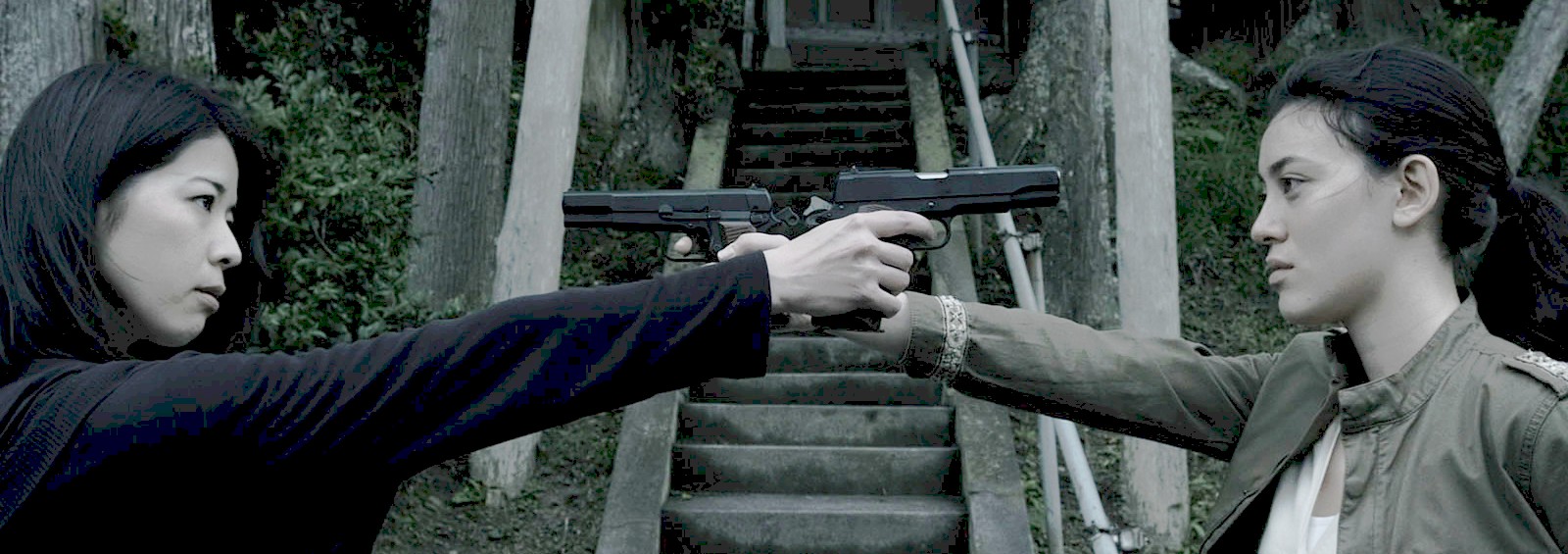 ★★
★★ Oh, dear. Where to start? Let’s get the positives out of the way. This looks reasonable enough, and clearly was not a poverty-row production. The central idea isn’t bad either: while a vigilante killer taking out misogynistic online sexists is a fairly ludicrous concept, if you squint a bit, you can see how it could have become an acerbic comment on the toxicity of social media. And that’s all I’ve got. For any potential is ruthlessly exterminated by staggeringly feeble execution. We’re there inside two minutes, when an unnamed Russian supermodel wakes, to get a video message from two pals vacationing in Morocco, then turns on the TV immediately to see a news report about them being executed by ISIS, with the video online for all to see. Wait, what?
Oh, dear. Where to start? Let’s get the positives out of the way. This looks reasonable enough, and clearly was not a poverty-row production. The central idea isn’t bad either: while a vigilante killer taking out misogynistic online sexists is a fairly ludicrous concept, if you squint a bit, you can see how it could have become an acerbic comment on the toxicity of social media. And that’s all I’ve got. For any potential is ruthlessly exterminated by staggeringly feeble execution. We’re there inside two minutes, when an unnamed Russian supermodel wakes, to get a video message from two pals vacationing in Morocco, then turns on the TV immediately to see a news report about them being executed by ISIS, with the video online for all to see. Wait, what?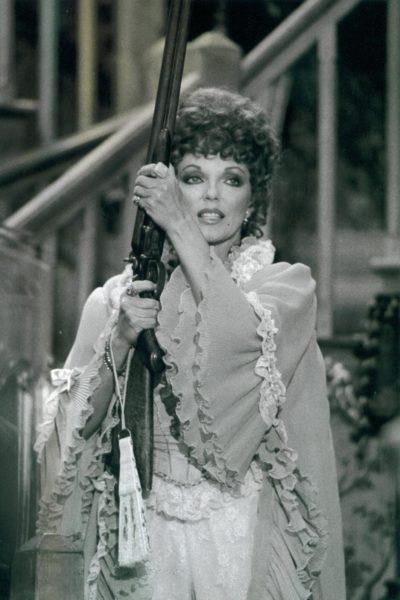 This sprightly TV movie from 1982 boasts a rather decent cast and, at least in the first half, manages to go in unexpected and interesting direction. It does end up descending into rather familiar territory thereafter, and the finale doesn’t manage to be as rousing as it should be. Yet it managed to keep my interest, and as this genre goes, that probably makes it better than average. It takes place in the last stages of the American Civil War, when the Southern women of Sweetwater have been left bereft of men, after the Confederate Army has recruited them all to their cause. Newly arrived in town is doctor Maggie McCulloch (Barnes), who has arrived to help her ailing aunt, Annie (Collins). She is shocked to discover Annie is less the mine owner touted in her letters, and more the owner of the town brothel.
This sprightly TV movie from 1982 boasts a rather decent cast and, at least in the first half, manages to go in unexpected and interesting direction. It does end up descending into rather familiar territory thereafter, and the finale doesn’t manage to be as rousing as it should be. Yet it managed to keep my interest, and as this genre goes, that probably makes it better than average. It takes place in the last stages of the American Civil War, when the Southern women of Sweetwater have been left bereft of men, after the Confederate Army has recruited them all to their cause. Newly arrived in town is doctor Maggie McCulloch (Barnes), who has arrived to help her ailing aunt, Annie (Collins). She is shocked to discover Annie is less the mine owner touted in her letters, and more the owner of the town brothel.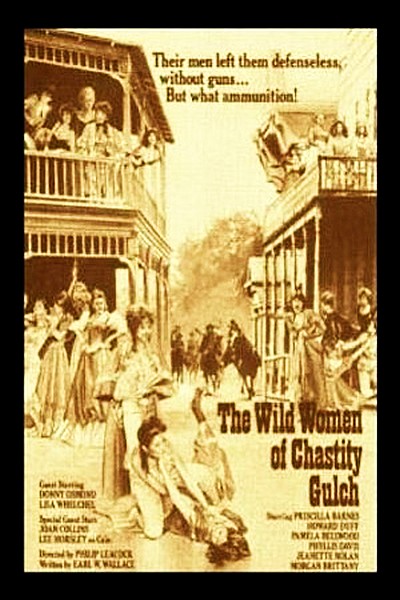 That aside, the plot unfolds largely as you’d expect. There’s the initial tension between whores and housewives, and the women struggle to come to terms with the everyday business of running the town. For example, there’s a fire drill, which ends up with half the ladies thrashing around in shallow water, and some other slapstick involving whitewash, that is somewhere between lightly amusing and embarrassing. However, Barnes – at the time a sitcom star in Three’s Company – does a very good job of keeping the film grounded, and the supporting cast help admirably in that aspect. Collins is particularly good, projecting an attitude which clearly proclaims she will take no shit from anyone.
That aside, the plot unfolds largely as you’d expect. There’s the initial tension between whores and housewives, and the women struggle to come to terms with the everyday business of running the town. For example, there’s a fire drill, which ends up with half the ladies thrashing around in shallow water, and some other slapstick involving whitewash, that is somewhere between lightly amusing and embarrassing. However, Barnes – at the time a sitcom star in Three’s Company – does a very good job of keeping the film grounded, and the supporting cast help admirably in that aspect. Collins is particularly good, projecting an attitude which clearly proclaims she will take no shit from anyone.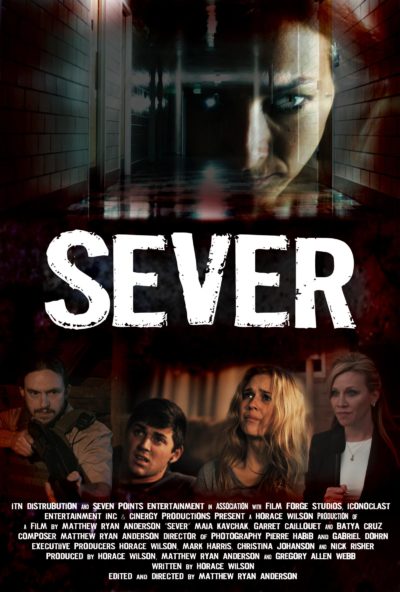 The French film
The French film  It has been a very quiet year for big-budget action heroine movies so far. Here we are, more than one-third of the way through 2023, and this Netflix Original is likely the highest profile entry to date. There is a certain pedigree here, albeit of the direct-to-streaming variety, with director Caro having also helmed the (considerably more expensive)
It has been a very quiet year for big-budget action heroine movies so far. Here we are, more than one-third of the way through 2023, and this Netflix Original is likely the highest profile entry to date. There is a certain pedigree here, albeit of the direct-to-streaming variety, with director Caro having also helmed the (considerably more expensive)